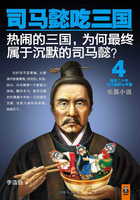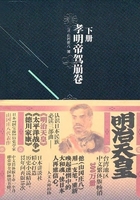My first problem was not to teach Patrick J. O’Haire to talk. My immediate task was to train him to refrain from talking and to avoid verbal fights.
Mr. O’Haire became one of the star salesmen for the White Motor Company in New York.
How did he do it? Here is his story in his own words: “If I walk into a buyer’s office now and he says, ‘What? A White truck? They’re no good! I wouldn’t take one if you gave it to me. I’m going to buy the Whose-It truck.’ I say, ‘The Whose-It is a good truck. If you buy the Whose-It, you’ll never make a mistake. The Whose-Its are made by a fine company and sold by good people.’
“He is speechless then. There is no room for an argument. If he says the Whose-It is best and I say sure it is, he has to stop. He can’t keep on all afternoon saying, ‘It’s the best’ when I’m agreeing with him. We then get off the subject of Whose-It and I begin to talk about the good points of the White truck.
“There was a time when a remark like his first one would have made me see scarlet and red and orange. I would start arguing against the Whose-It; and the more I argued against it, the more my prospect argued in favor of it; and the more he argued, the more he sold himself on my competitor’s product.
“As I look back now I wonder how I was ever able to sell anything. I lost years of my life in scrapping and arguing. I keep my mouth shut now. It pays.”
As wise old Ben Franklin used to say, “If you argue and rankle and contradict, you may achieve a victory sometimes; but it will be an empty victory because you will never get your opponent’s good will.”
So figure it out for yourself. Which would you rather have, an academic, theatrical victory or a person’s good will? You can seldom have both.
Frederick S. Parsons, an income tax consultant, had been disputing and wrangling for an hour with a goverment tax inspector. An item of nine thousand dollars was at stake. Mr. Parsons claimed that this nine thousand dollars was in reality a bad debt, that it would never be collected, that it ought not to be taxed. “Bad debt, my eye!” retorted the inspector. “It must be taxed. ”
“This inspector was cold, arrogant and stubborn,” Mr. Parsons said as he told the story to the class. Reason was wasted and so were facts... The longer we argued, the more stubborn he became. So I decided to avoid argument, change the subject, and give him appreciation.
“I said, ‘I suppose this is a very petty matter in comparison with the really important and difficult decisions you’re required to make. I’ve made a study of taxation myself. But I’ve had to get my knowledge from books. You are getting yours from the firing line of experience. I sometime wish I had a job like yours. It would teach me a lot.’ I meant every word I said.”
“Well.” The inspector straightened up in his chair, leaned back, and talked for a long time about his work, telling me of the clever frauds he had uncovered. His tone gradually became friendly, and presently he was telling me about his children. As he left, he advised me that he would consider my problem further and give me his decision in a few days.
“He called at my office three days later and informed me that he had decided to leave the tax return exactly as it was filed.”
This tax inspector was demonstrating one of the most common of human frailties. He wanted a feeling of importance; and as long as Mr. Parsons argued with him, he got his feeling of importance by loudly asserting his authority. But as soon as his importance was admitted and the argument stopped and he was permitted to expand his ego, he became a sympathetic and kindly human being.
多年前,帕特里克?欧?海瑞参加了我的成人教育班。帕特文化水平不高,却很喜欢和人争论。他曾做过司机,之所以来向我求助,是因为他推销卡车没能成功。这是由一个小问题引发的——他总是不断地与客户争论而触怒他们。一旦对方对他销售的汽车稍有不满,帕特便会喋喋不休,没完没了。那段时期,帕特赢了不少场争论。正如他后来对我所说的那样:“我常常走出办公室便自言自语道:‘我好好地教训了他。’我确实教训了他,可我没有卖出想卖的车。”
我首先需要解决的不是教帕特如何去说话,最紧迫的是,我要帮他克制自己,避免争吵。
如今,欧?海瑞已经是纽约怀特汽车公司的销售明星。
他是如何做到的呢?让我们听听他自己是怎么说的:“如果我现在向某个客户推销,而他说:‘什么?怀特汽车?怀特汽车一点儿也不好。就算你白给我一辆,我也不会要的。我想买一辆胡佛牌汽车。’我就会说:‘胡佛牌的汽车确实是好汽车,如果你选择了那个牌子,肯定是不会错的。胡佛汽车是由知名厂家生产的,他们的销售人员也很出色。’”
“这样,他就没什么可说的了。根本没有争吵的空间。如果他说那个是最好的品牌,我随即表示认可,他就无言以对了。当我认同时,他不可能整个下午都谈论胡佛汽车的优点。当我们绕开话题时,我就会开始谈论怀特汽车的好处。”
“要是在以前,只要他刚一说出刚才那样的话,我就会变得暴跳如雷,一味地挑剔胡佛汽车的缺点。我越是争吵,就会越有利于胡佛汽车;而客户呢,他越是争吵,就越容易买我竞争对手的车。”
“现在回首往事,我怀疑自己卖不了任何东西。我把自己的生命浪费在争吵之中。我现在学会了闭住嘴巴,并且从中受益匪浅。”
就像聪明的富兰克林所言:“假如你喜欢喋喋不休,争强好胜,那么你也许偶尔会赢。可是这种胜利没有什么实际意义,因为你永远获得不了对方的好感。”
所以,好好地反省一下自己。理论上虚假的胜利和一个人发自内心的好感,你会选择哪一种呢?你不可能同时拥有。
因为一笔9,000美元的重要账目,个人所得税顾问弗雷德里克?佩森与一名政府税务稽查员争论了将近一个小时。佩森声称,这9,000美元是呆账,根本不可能收上来,所以不应该征收所得税。而那位顽固的稽查员说:“不可能,一定要征收。”
佩森在课堂上对学生们讲述道:“那位稽查员是一个骄傲、自大、顽固的人。”解释根本没有作用……事实上,我们越是争吵,他就越顽固。所以,我就不再与他争吵,试着转变话题,表示理解他的工作。
“我说:‘与你处理的那些极其重要而困难的事相比,这件事情根本不值一提。我只是自学了税务,而且仅仅局限于书本,而你的税务知识全凭实践而来。说实话,我十分羡慕你的工作,它可以教会我很多东西。’”
“哦。”那位稽查员直起身跟我谈了很久。关于他的工作——他告诉了我许多工作中的技巧。他的语气变得缓和了许多,后来还谈起了自己的孩子。临走时,他告诉我,他会仔细考虑一下我的问题,并在几天内给我答复。
“三天后,我在办公室里接到了他的电话。他通知我,那笔所得税不征收了。”
人性中最常见的弱点在这位稽查员的身上得到了很好的验证。他想得到被重视的感觉。所以,当佩森先生与他争吵时,他固执地展示权威来找到被重视的感觉。然而,一旦重视感得到满足,争吵停止,便会展现出他宽容、温和的一面。
心灵小语
争吵是无用的,它往往让双方更坚定自己的立场。
记忆填空
1. Pat won a lot of__ in those days,__ he said to me afterward,“I often walked out of an office saying,‘I told that bird__.’Sure I had told him something, but I hadn’t__ him anything.”
2. “As I look back now I__ how I was ever able to sell anything. I__ years of my life in scrapping and arguing. I keep my mouth__ now. It pays.”















